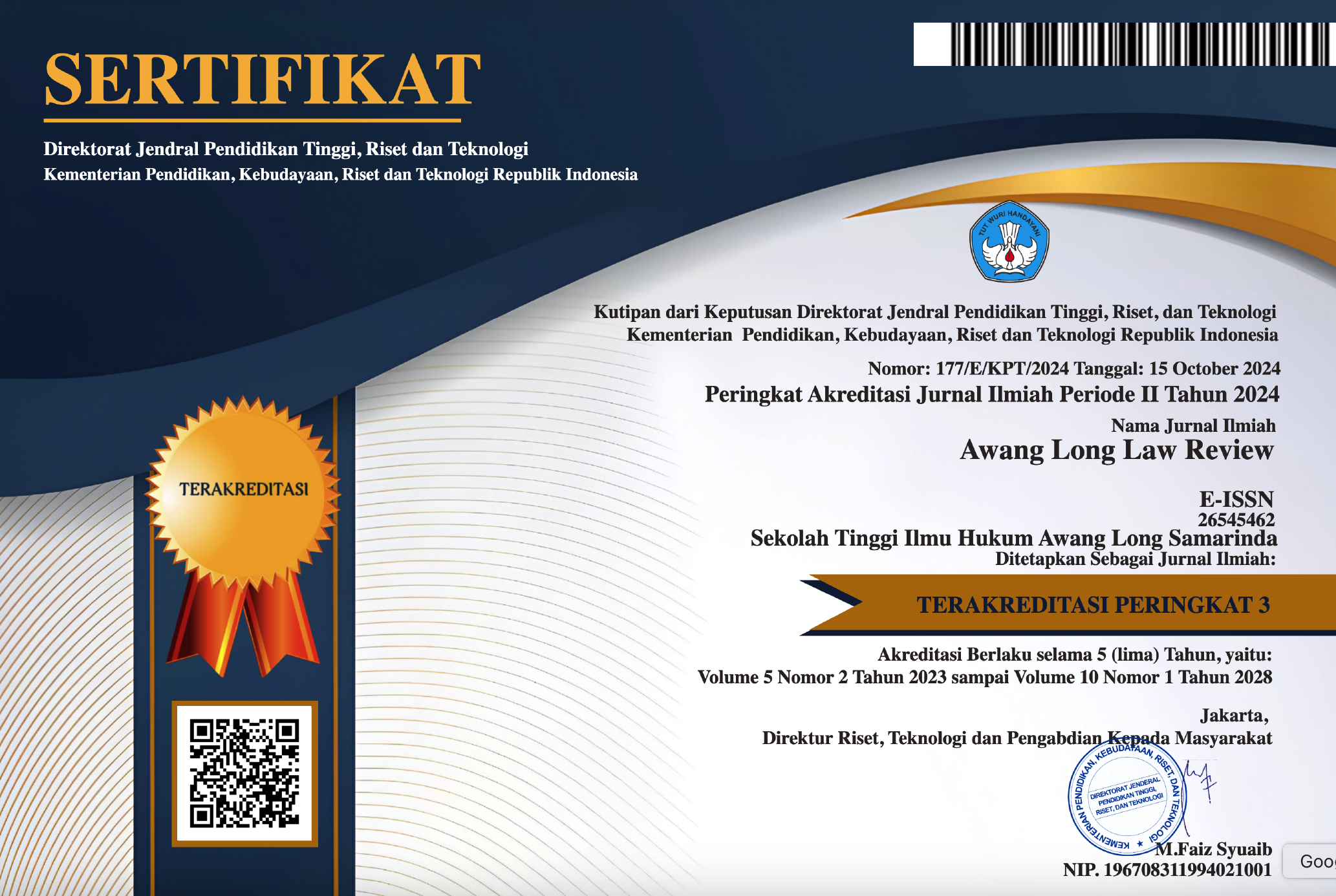POLICY MODEL FOR THE PROTECTION OF INDONESIAN MIGRANT WORKERS’ REMITTANCES BASED ON PANCASILA: A COMPARATIVE ANALYSIS OF PROTECTION MECHANISMS AND SOCIAL JUSTICE VALUES BETWEEN INDONESIA AND THE PHILIPPINES
Abstract
Remittances from Indonesian migrant workers significantly contribute to national economic growth while serving as a crucial source of household welfare for their families. However, current remittance governance still faces regulatory and administrative challenges that hinder the full realization of economic benefits for migrant workers. This study aims to analyze Indonesia’s remittance protection policies through the lens of administrative law and international law while formulating an ideal policy model grounded in Pancasila values. This research employs a normative legal methodology using statutory, conceptual, and comparative approaches, particularly contrasting Indonesia’s policies with those of the Philippines. The findings reveal that although Indonesia has established a regulatory foundation through Law No. 18 of 2017 and national financial regulations, the implementation remains insufficient in addressing high transaction costs, limited access to formal financial services, and the widespread reliance on informal channels prone to fraud and loss of funds. Compared to the Philippines, Indonesia lags behind in ensuring interoperable cross-border payment systems, cost transparency, and financial literacy support for migrant workers and their families. Furthermore, weaknesses in regulatory oversight and interagency coordination contribute to unrecorded remittances and inadequate legal protection, especially for undocumented migrants. By adopting the social justice principles of Pancasila as a normative foundation, remittance policies should prioritize cost efficiency, accessible digital financial services, and strengthened supervisory mechanisms across institutions. Therefore, comprehensive government intervention is required to ensure that remittances operate not only as financial transfers but as instruments of equitable welfare and sustainable national development.
Downloads
References
Antara. (2018). Remitansi TKI Capai Rp128 Triliun Setahun, BI: Filipina Lebih Besar. Tirto.Id.
Asshiddiqie, J. (2020). Konstitusi dan Pancasila sebagai Sumber Hukum dalam Sistem Hukum Nasional. Konstitusi Press.
Ayuningtyas, A., & Yuniza, M. E. (2022). Indonesian Government Intervention in the Management of Indonesian Migrant Workers’ Remittances. ASEAS – Austrian Journal of South-East Asian Studies, 15(1).
Bangko Sentral ng Pilipinas. (2025). Remittances 2024 Press Release.
Bank Indonesia. (2021a). Peraturan Bank Indonesia Nomor 23/6/PBI/2021 tentang Penyedia Jasa Pembayaran.
Bank Indonesia. (2021b). Peraturan Bank Indonesia Nomor 23/7/PBI/2021 tentang Penyelenggara Infrastruktur Sistem Pembayaran.
Bank Indonesia and BP2MI. (2024a). Siaran Pers No. 26/112/DKom: BI dan BP2MI Perkuat Kerja Sama untuk Peningkatan Pemberdayaan Ekonomi dan Keuangan PMI.
Bank Indonesia and BP2MI. (2024b). Statistik Remitansi PMI Tahun 2024.
BP2MI. (2020). Program Edukasi Pengelolaan Keuangan untuk PMI.
Dewanto, K. (2021). Remitansi pribadi ke Filipina pada 2020 capai 33 miliar dolar AS. Antara News.
Hadjon, P. M. (1987). Perlindungan Hukum Bagi Rakyat di Indonesia: Sebuah Studi tentang Prinsip-Prinsipnya, Penerapannya oleh Pengadilan Dalam Lingkungan Peradilan Umum dan Pembentukan Peradilan Administrasi Negara. Bina Ilmu.
HR, R. (2020). Hukum Administrasi Negara. Rajawali Pers.
ILO. (1949). Migrasi Tenaga Kerja (Edisi Revisi). 1–32.
Indrawati, I. (2012). Prinsip Good Financial Governance dalam Konteks Keuangan Publik. Jurnal Perspektif, 17(2).
International Labour Organization. (2023). ILO di Indonesia. ILO.
International Labour Organization. (2025). K-143 Konvensi Pekerja Migran Ketentuan Tambahan 1975.
Komnas HAM. (2016). Konvensi Internasional tentang Perlindungan Hak Pekerja Migran dan Anggota Keluarganya.
Kompas.id. (2025). Mempertahankan Manfaat Remitansi Pekerja Migran Indonesia. Kompas.Id.
KP2MI. (2025). Wamen Dzulfikar: Remitansi Bukan Sekadar Kiriman Uang, tapi Kekuatan Ekonomi Bangsa.
Marbun, S. F. (2012). Peradilan Administrasi Negara dan Upaya Administratif di Indonesia. FH UII Press.
Muhaimin. (2020). Metode Penelitian Hukum. Mataram University Press.
Notonagoro. (1983). Pancasila: Dasar Falsafah Negara. Bina Aksara.
Tempo English. (2025). Indonesian Migrant Workers Send Home Rp 253.3 Trillion in Remittances in 2024. Tempo English.
The Philippine Star. (2023). BSP Wants Remittance Cost Brought Down to 1 Percent. The Philippine Star.
United Nations. (1990). International Convention on the Protection of the Rights of All Migrant Workers and Members of Their Families. In UN Treaty Series (Vol. 2220).
VOI News. (2024). 4.3 Million PMI Work Illegally Abroad, World Bank Data. VOI News.
Wibowo, S. H., & Matheus, J. (2023). Tinjauan Yuridis Pemberian Uang Pesangon Kepada Karyawan yang Di-PHK Pasca Pengesahan Perppu Cipta Kerja. NUSANTARA: Jurnal Ilmu Pengetahuan Sosial, 10(5), 2560–2565. https://doi.org/http://dx.doi.org/10.31604/jips.v10i5.2023.2560-2565
Women’s World Banking. (2025). From Cash to Digital: Guiding Indonesia’s Migrant Workers to Use Digital Wallets.
World Bank. (2023). Remittance prices worldwide quarterly report. The World Bank Group.
Copyright (c) 2025 Lezhna Nayla Nurjihan, Utami Julianti

This work is licensed under a Creative Commons Attribution-ShareAlike 4.0 International License.







